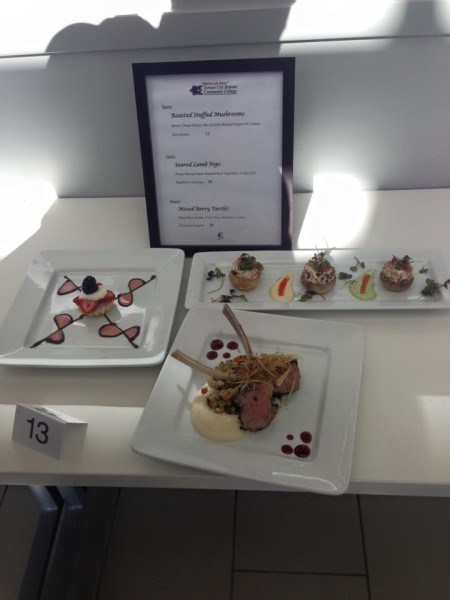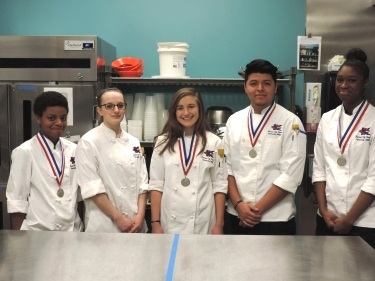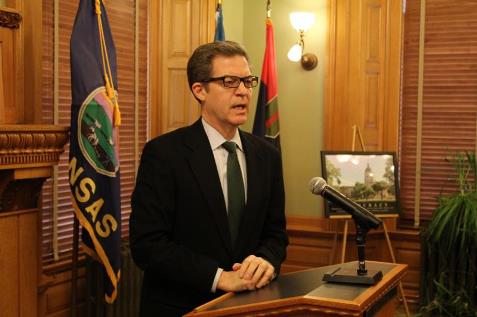by Kelly Rogge, KCKCC
Kansas City Kansas Community College culinary students recently had the chance to shine in a Team Culinary Competition designed for high school students.
The KCKCC Culinary Team included Jenna Crum, junior at Basehor-Linwood High School; Evelyn Lawson and Destiny Turner, seniors at Leavenworth High School; Daniel Tapio, senior at Turner High School and Abby Lee, senior at Basehor-Linwood. The group attends KCKCC-TEC and the Pioneer Career Center in Leavenworth through the college’s high school programs and participated in the competition at Johnson County Community College earlier this month.
Fourteen high schools from around the Kansas City metropolitan area participated in the first-year competition. The KCKCC team received a silver medal placing behind only Olathe North and Staley High School, which both received gold medals.
“It was nerve-wracking, but a great experience to challenge ourselves against other people,” Crum said of the experience. “We wanted gold and to get a trophy. That was our goal. I think we were all happy with how we did though.”
Each four-person team was responsible for preparing a three-course meal in 60 minutes. In addition, they had 15 minutes to demonstrate knife skills. Teams were not competing against each other, but against a set of standards established by the American Culinary Federation. Teams started with 100 points and received deductions based on errors made.
“The team really pulled together and did an amazing job,” said chef Kelly Jenkins, culinary arts instructor at the Pioneer Career Center. “Before this competition team, they did not know each other at all and most were not even in the same classes. We have since seen them work together and grow together to become one big family.”
Students had the opportunity to try out for the competition team in December and started working with each other in January. The culinary team created the menu and included an appetizer of roasted stuffed mushrooms with two aioli sauces; a main entrée of rack of lamb, vegetable medley, parsnip and potato puree, blackberry gastric and fried leeks and a dessert of mixed berry tarts with chocolate ganache and strawberry coulis. Coached by chef Kelly Jenkins and chef Justin Mitchell, culinary arts instructors at KCKCC-TEC and LV KCKCC Pioneer Career Center, the team practiced four days a week to perfect their menu and improve their culinary skills.
“This group of students really put in a lot of work together,” Mitchell said. “They really worked hard. We even got comments from the judges on their excellent teamwork. They just meshed together in a great way.”
Lawson, who plans to continue her culinary education after high school, said the experience of participating in the culinary competition only furthered her desire to do something within the culinary arts field. She said the education she has received from KCKCC will be beneficial as she moves onto college.
“Because of this program, we get to go to college already knowing how to cook. We are getting training and earning high school and college credit at the same time,” she said. “I definitely want to continue with my culinary training. I think this has also been a fun process for our instructors because they have gotten to watch us grow up culinary style.”
For more information about the KCKCC culinary arts program, visit www.kckcc.edu or call 913-288-7800 or for Leavenworth students, 913-288-7750.
Kelly Rogge is the public information supervisor at Kansas City Kansas Community College.



